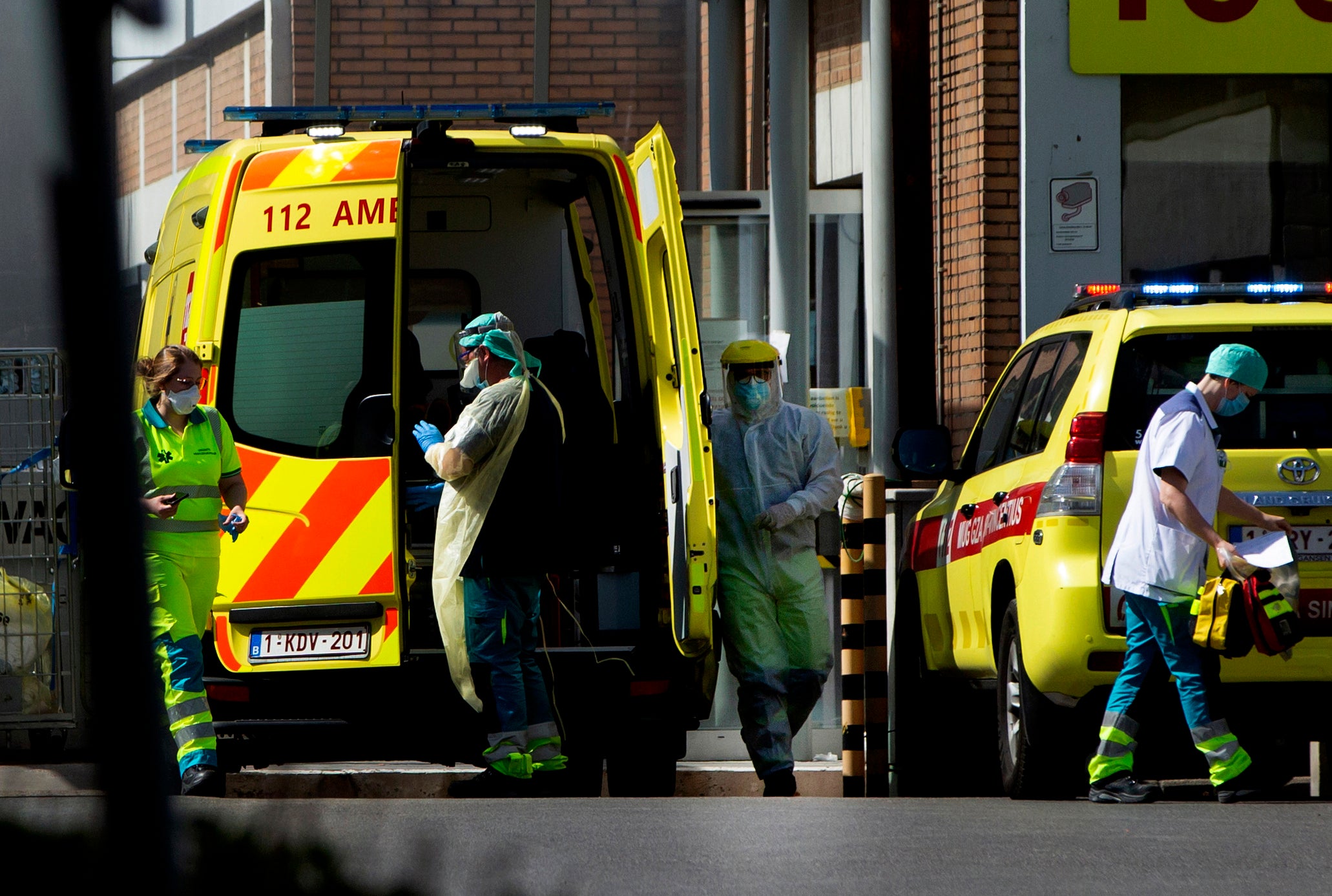Germany and France gear up for new lockdowns as coronavirus cases surge
Germany and France were bracing for new lockdowns to stop the fast-rising tide of coronavirus cases beginning to fill hospitals

Your support helps us to tell the story
From reproductive rights to climate change to Big Tech, The Independent is on the ground when the story is developing. Whether it's investigating the financials of Elon Musk's pro-Trump PAC or producing our latest documentary, 'The A Word', which shines a light on the American women fighting for reproductive rights, we know how important it is to parse out the facts from the messaging.
At such a critical moment in US history, we need reporters on the ground. Your donation allows us to keep sending journalists to speak to both sides of the story.
The Independent is trusted by Americans across the entire political spectrum. And unlike many other quality news outlets, we choose not to lock Americans out of our reporting and analysis with paywalls. We believe quality journalism should be available to everyone, paid for by those who can afford it.
Your support makes all the difference.Germany and France were bracing for new lockdowns Wednesday, as governments sought to stop the fast-rising tide of coronavirus cases that are beginning to fill European hospitals.
French markets opened lower on expectations that President Emmanuel Macron will announce tough measures during a televised evening address to the nation.
Doctors in France are calling on the government to impose a new nationwide lockdown, noting that more than half of the country's intensive care units are now occupied by COVID-19 patients and medical staff are under increasing strains.
Most parts of France were colored deep red on a map representing COVID-cases from the European Centers for Disease Prevention and Control, signifying more than 240 cases per 100,000 people in the past two weeks. On Tuesday alone, the country had a big spike in the number of daily deaths from COVID-19, recording an additional 523 deaths and another 33,417 new infections.
Belgium, the Netherlands, most of Spain and the Czech Republic are seeing similarly high rates of infection, while Germany was still colored in orange — indicating that the average number of new cases there is still under 120 per 100,000 over the last 14 days.
Still, German Chancellor Angela Merkel was pressing governors of the country’s 16 states to quickly agree a partial lockdown Wednesday that could include further restrictions on public gatherings and the closure of bars and restaurants.
The plan has caused anguish in Germany's hospitality industry, with thousands of venue owners staging a protest Wednesday at Berlin’s landmark Brandenburg Gate to demand further financial support from the government.
While Germany has fared better than many of its neighboring European countries during the pandemic, officials warn that it, too, is beginning to lose control of the situation.
Economists said further restrictions need to be carefully calibrated to avoid dealing a second severe blow to businesses.
“A national lockdown, as we have seen in, ravages an economy and would add significant complications to the ongoing economic recovery,” said Fiona Cincotta, an analyst at online trading firm GAIN Capital.
But Thomas Gitzel, chief economist at Liechtenstein's VP Bank Group, said a temporary lockdown could be less harmful than a prolonged slump in consumer spending as infection levels remain stubbornly high.
“One doesn't need to be a virologist to conclude that, without further restrictions, the number of new daily infections will likely rise,” said Gitzel, adding that a short, strict lockdown could be effective. “The strict containment measures in March and April laid the ground for an economically successful summer.”
Wales has opted for that short, sharp approach, with a 17-day lockdown in which people cannot even drive out of their region to England.
Officials in Germany have cited the failure by authorities in the neighboring Czech Republic to maintain their springtime successes against the virus, saying they opened too widely in the summer.
The Czech Health Ministry said the country's day-to-day case increase hit a new record high of 15,663 on Tuesday — as many as Germany, which has eight times the population.
The Czech government has further tightened its regulations, imposing a nationwide curfew between 9 p.m and 6 a.m. that started Wednesday. It previously limited free movement, closed stores, schools and restaurants, made it mandatory to wear face masks indoors and outdoors and banned sport competitions, but the number of infections has continued to rise.
Several demonstrations against the virus restrictions were planned for Wednesday in the capital of Prague.
Even Sweden, which avoided a national lockdown and generally imposed far lighter measures than other European countries, is now urging people to avoid shopping centers and shops and stay away from public transportation.
The World Health Organization said more than 2 million confirmed coronavirus cases were reported last week — the shortest time ever for such an exponential increase.
It said for the second consecutive week, the European region accounted for the biggest proportion of new cases, with more than 1.3 million cases or about 46% of the worldwide total. The U.N. health agency said deaths were also on the rise in Europe, with about a 35% spike since the previous week. Overall, Europe has seen more than 250,000 virus-related deaths, according to a tally by Johns Hopkins University.
The WHO also noted that hospitalizations and ICU occupancy due to COVID-19 increased in 21 countries across Europe.
—-
Maria Cheng in London and Karel Janicek in Prague contributed to this report.
